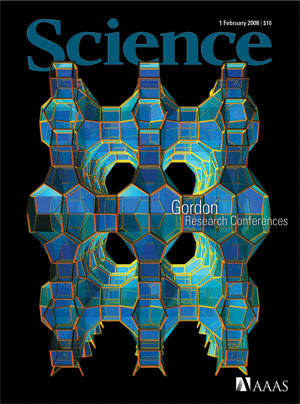Dr. Molly Brown (Science Systems and Applications, Inc., NASA Goddard Space Flight Center Biospheric Sciences Branch) and Dr. Chris Funk, of our Climate Hazards Group, recently coauthored an article in the Perspectives section of the journal Science which indicates that food insecurity will increase with climate change unless early warning systems and aid programs are used more effectively. (Brown, M. E., & Funk, C. C. (2008). Climate: Food security under climate change. Science, 319(5863), 580-581). Brown and Funk cite studies indicating that increasing temperatures and declining precipitation will reduce yields from primary crops in semiarid regions which, in turn, will seriously impact global food security.
The article points out that food insecurity, “is not solely a product of ‘climatic determinism’ and can be addressed by improvements in economic, political, and agricultural policies at local and global scales. In currently food-insecure regions, farming is typically conducted manually, using a hoe and planting stick with few inputs. The difference between the productivity of these farms and those using petroleum-based fertilizer and pesticides, biotechnology-enhanced plant varieties, and mechanization is extreme. Not only will climate change have a differential effect on ecosystems in the tropics due to their already warmer climates, but also poor farmers in the tropics will be less able to cope with changes in climate because they have far fewer options in their agricultural system to begin with. These handicaps can be exacerbated by macro-economic policies that create disincentives for agricultural development, such as agricultural subsidies in the United States and Europe and poorly implemented cash transfer programs.”
While some studies suggest that switching from producing corn to producing sorghum (whose lower water requirements and higher temperature tolerances are better suited to a warmer and drier climate), the authors point out that this “assumes markets for millet in regions where only maize is eaten, and technology and know-how about how to process and consume sorghum in maize zones.” Millions of hungry people subsist on what they produce, and 30% of farmers in developing countries are food-insecure. However, the authors suggest that improved environmental monitoring and prediction systems, crop insurance programs that are triggered by remote sensing data products, and investments in improved seeds and varietals and an augmented use of inorganic fertilizers, along with “improved local governance, reduced developed-world agricultural subsidies, and more nuanced food aid policies that protect local markets could together produce rapid improvements in food access and availability, reducing hunger while providing for more people.” For the complete text, see http://www.sciencemag.org/cgi/content/full/319/5863/580; also see the Discovery News article on the subject at .


